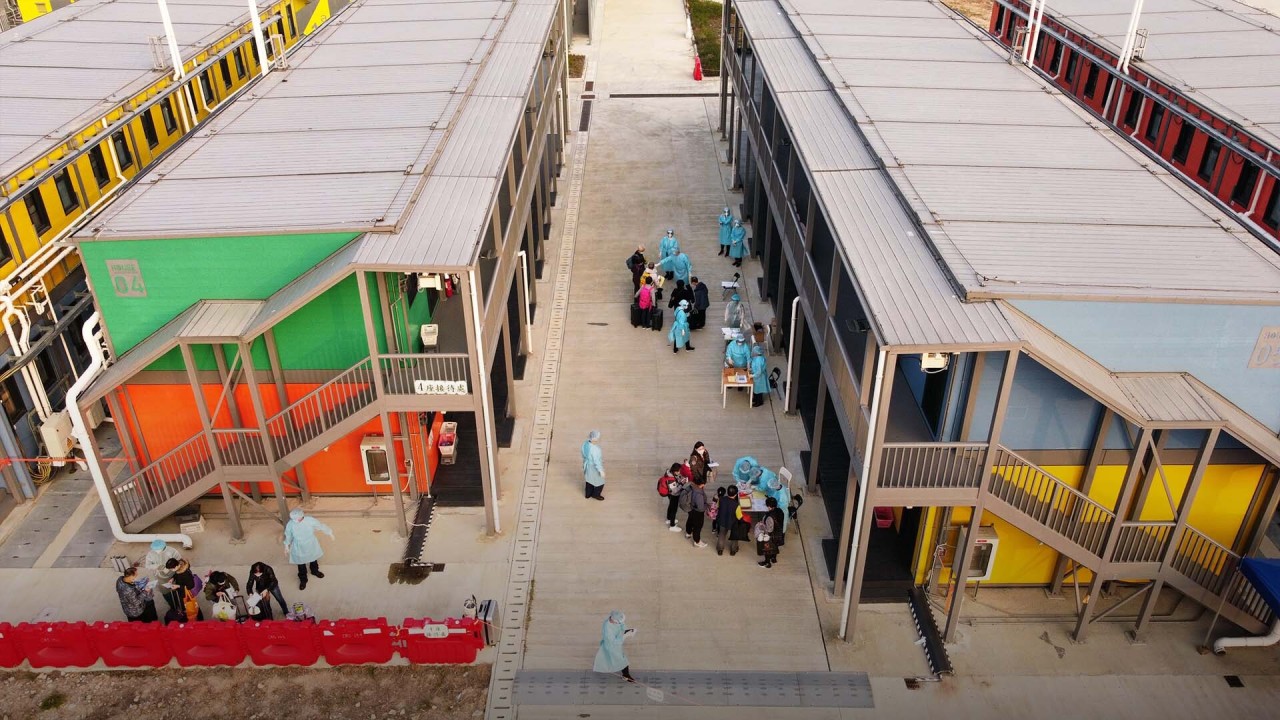
If Hong Kong continues with its zero-Covid policy, it will become a shell of its former self
- Struggling to contain Omicron yet unwilling to give up on its zero-Covid approach, Hong Kong lacks a clear way out of the pandemic
- The result is the worst of both worlds: limited freedom to travel or socialise and a heightened vulnerability to outbreaks
It’s hardly surprising given that there are an average of 320,000 cases in France each day, meaning that every person in the country of 67.3 million will potentially have had one type or another in 210 days.
France, like many other countries, has decided to live with the coronavirus. Omicron, far more transmissible than previous variants, is spreading like wildfire around the world. My son got it even though he has been previously infected with the disease and is double vaccinated with the Pfizer-BioNTech vaccine. His only symptom is a slight dry cough.
France has adopted some mainland-China-like practices with its prevention strategy, requiring all citizens to use a smartphone app showing vaccination and testing status to enter venues like government buildings, restaurants, bars, fitness centres and schools.
Mask-wearing and hand cleansing are commonplace in urban areas, but the virus is still so rampant despite a countrywide vaccination rate of 78 per cent that it is inevitable people will get reinfected.
But not tolerating the disease has obvious drawbacks; if there is a serious outbreak of Omicron, as is happening elsewhere, Hong Kong is woefully short of testing and quarantining facilities and hospital isolation and intensive care beds.
But the implications of such a policy are obvious – while my son can get on a plane and go to other countries for a holiday without quarantining for weeks at a time on arrival and return, as he has done several times in the past year, my reluctance to spend most of my holiday trapped in a hotel room means I have not travelled overseas for two years.
Hong Kong’s perceived backwardness by Beijing when it comes to preventive measures means I am even unable to go to the mainland or neighbouring Macau.
The government’s desire to please mainland authorities in the hope of cross-border travel resuming is also negatively affecting relations with the foreign business community, with activities of staff being severely curtailed. Some companies are threatening to relocate offices to Singapore and other places that have decided to live with Covid-19.
Live with Covid-19 or zero tolerance? World needs standard approach
Hong Kong can continue on its present track battling a wave of disease that gets ever-higher. In the process, the city will become a shell of what it once was, with frustrated, disillusioned and mentally strained residents. Or, it can look forward to a future of being part of the wider world, able to interact, get talent, learn and prosper.
Peter Kammerer is a senior writer at the Post


